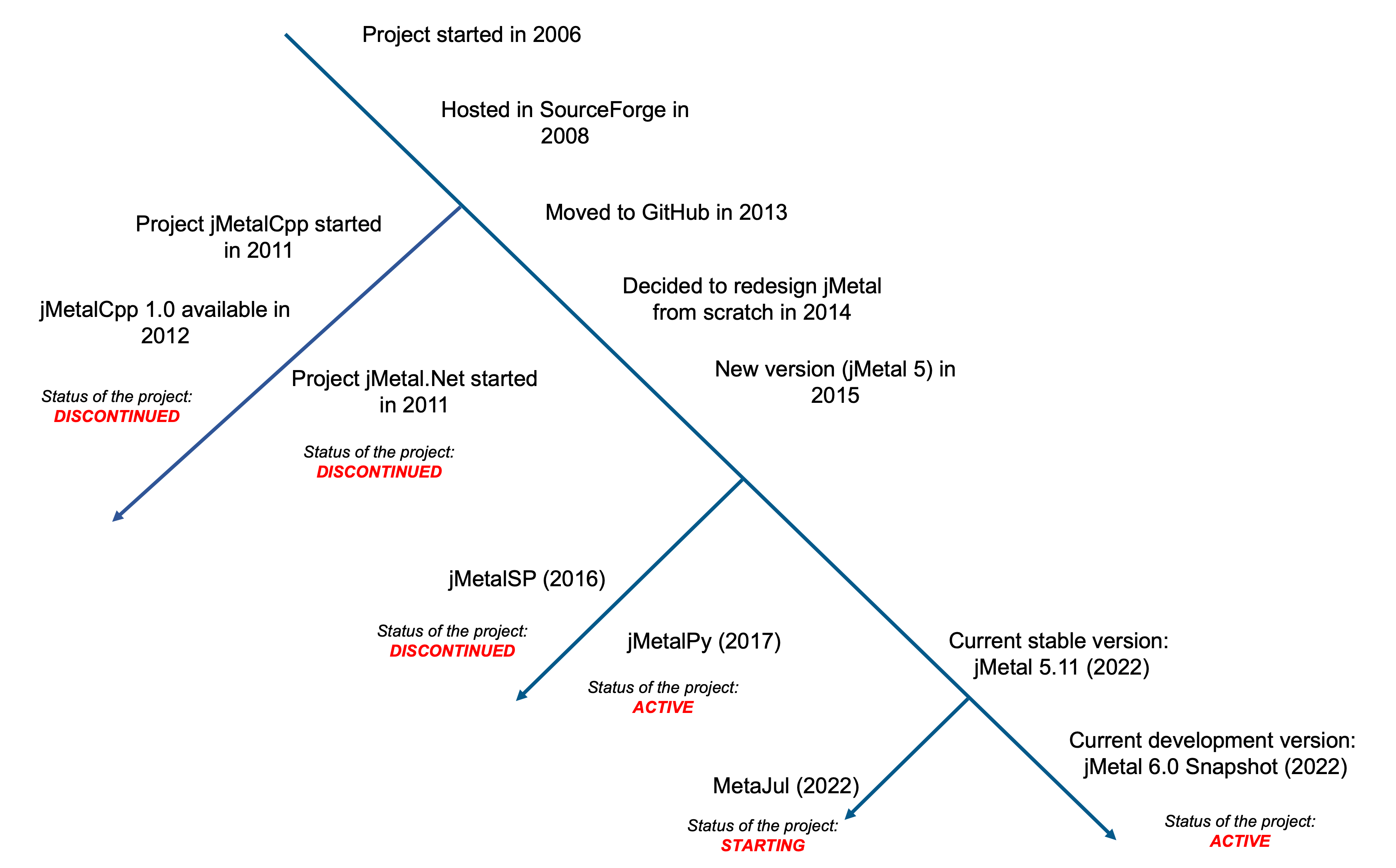About jMetal
jMetal is a Java-based framework for multi-objective optimisation with metaheuristics, designed and developed by computer science engineers for their own use in research in this area. The origin of the tool was motivated by our interest in working on multi-objective optimization about 20 years ago; in particular, we wanted to apply our background in parallelism to multi-objective metaheuristics. In that time, the available software tools were the implementation of NSGA-II in C and the PISA framework, also in C. On examination, we were not comfortable with the available source codes; they lacked an object-oriented design and, in general, we found it difficult to read and understand them. What we needed was an easy-to-use, flexible, extensible, and portable framework for our own research. Our approach was to write our own framework from scratch for our research, resulting in jMetal.
The figure below summarizes the chronology of jMetal releases over time, including related projects:

Timeline of the development of jMetal and related projects.
The evolving of jMetal has been mainly addressed by major design changes related to the architecture
of the algorithms and the project. The first public version (jMetal 4), described in the paper
jMetal: A Java framework for multi-objective optimization,
published in 2011, is based on single Java package. the algorithms were implemented in a execute()
method (i.e., a monolithic architecture). The second version (jMetal 5), presented in
Redesigning the jMetal Multi-Objective Optimization Framework in
2015, is a Maven Java project, containing unit tests, and the algorithms are implemented by inheriting from
algorithm templates. The most recent release, jMetal 6.0, is an extension of jMetal 5.0, adding a package for developing
algorithms from component-based templates and another package for automatic algorithm configuration and design.